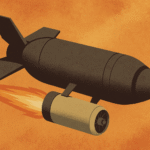European leaders have pulled out of a major summit with Latin American and Caribbean nations after U.S. President Donald Trump imposed sanctions on Colombia and authorised military operations in the Caribbean, escalating geopolitical tensions across the region.
The EU–Celac Summit, scheduled for November 9–10 in Santa Marta, Colombia, was intended to bring together 60 leaders from Europe, Latin America, and the Caribbean to strengthen political and trade ties. However, the event is now expected to be poorly attended after several key European figures canceled their participation.
Key European Leaders Withdraw
Officials confirmed that European Commission President Ursula von der Leyen, German Chancellor Friedrich Merz, and French President Emmanuel Macron will no longer attend. Their withdrawals came shortly after Trump’s remarks accusing Colombian President Gustavo Petro of being an “illegal drug dealer” and his order for U.S. military strikes on alleged drug trafficking vessels in the region.
A spokesperson for the European Commission said von der Leyen’s absence was due to “the current European political agenda and the low participation of other heads of state.” Germany cited similar reasons for Merz’s decision, while France declined to provide details on Macron’s cancellation.
The EU’s foreign policy chief Kaja Kallas has been tasked with representing von der Leyen, while European Council President António Costa will attend and co-chair the summit, a move seen by some diplomats as an attempt to maintain appearances amid declining attendance.
Geopolitical Fallout
Trump’s actions — the largest U.S. naval deployment in the Caribbean since 1989 — are part of a campaign to combat drug trafficking and pressure Venezuela’s authoritarian president Nicolás Maduro. Last month, the U.S. sanctioned President Petro, citing Colombia’s alleged role in the drug trade.
The sanctions caused an international incident when Petro’s presidential plane was denied refueling in Cabo Verde during a trip to Saudi Arabia. The Colombian leader has since accused Washington of trying to sabotage the summit, writing on X (formerly Twitter):
“Forces alien to peace in America have wanted the Celac–European summit to fail. The new anti-democratic fossil geopolitics is trying to stop the peoples who want freedom and democracy from meeting.”
EU officials, meanwhile, are treading cautiously to avoid antagonizing Trump. European leaders depend on U.S. defense cooperation and intelligence sharing, especially regarding support for Ukraine in its war against Russia.
Colombia Denies Isolation
Despite the wave of cancellations, Colombian Deputy Foreign Minister Mauricio Jaramillo insisted the summit would proceed as planned, calling the absences “normal scheduling issues” unrelated to U.S. actions.
“The summit is about much more than these key figures,” Jaramillo said. “Colombia is not isolated.”
Regional Divisions Deepen
Brazil’s President Luiz Inácio Lula da Silva reversed an earlier decision and confirmed his attendance, signaling solidarity with other South American and Caribbean nations amid tensions with Washington. Spain’s Prime Minister Pedro Sánchez, a vocal critic of Trump’s foreign policy, also plans to attend.
Meanwhile, regional instability is spreading. The Dominican Republic announced it was cancelling next month’s Summit of the Americas, which was meant to host leaders from Latin America, the U.S., and Canada. The move — supported by the Trump administration — underscores the sharp divisions among Latin American governments over Washington’s approach to Venezuela and drug enforcement.
Outlook
The diplomatic fallout surrounding the Colombia summit underscores the growing strain between Washington and Latin American capitals — and the challenge for Europe in balancing relations between both regions. With several top leaders absent and tensions running high, the Santa Marta gathering is set to be one of the most subdued EU–Latin America summits in recent years.








